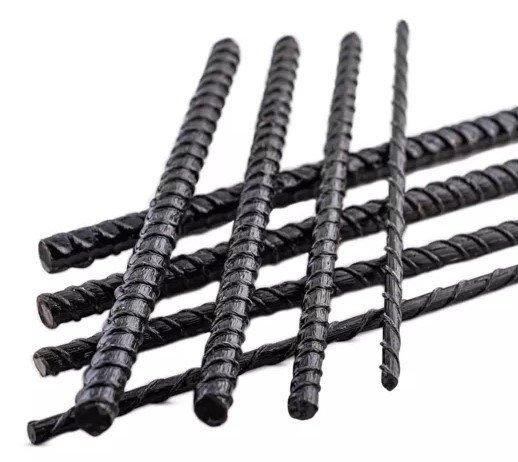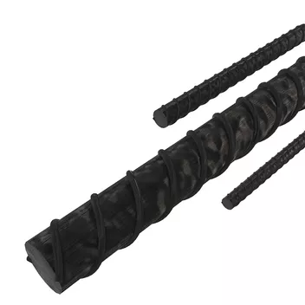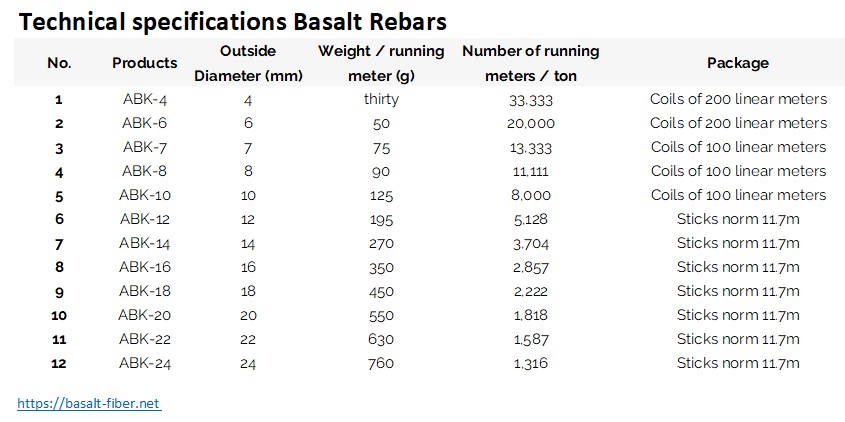

Basalt Rebars are made from Basalt Rovings and a specific resin. The process is called pultrusion.
Basalt Rebars are used in construction, such as asphalt or concrete related (roads, bridges, buildings, etc). They are designed to replace glass or steel rebars, as their properties are superior.
E.g. when temperature changes occur, steel rebars will expand and contract more than concrete or asphalt. This effect causes the construction to crack. The expansion and contraction at temperature changes is also called “coefficient of expansion” which is vastly different between Steel Rebars and asphalt or concrete. Basalt Rebars however do have an extremely close coefficient of expansion to asphalt or concrete.
Factoring in the cost of repairs and the risk of failure in construction when using Steel Rebars, it makes the Basalt Rebar not only a saver choice, but also a more cost efficient one.
Besides the above mentioned, Basalt Rebars have many other advantages e.g.:
- Basalt Rebars are multiple times stronger than Steel Rebars
- Basalt Rebars do not rust
- Basalt Rebars can lead to lighter weight constructions than Steel Rebars (around 20 to 30%)
- Basalt Rebars are environmentally friendly
- Basalt Rebars to do not conduct electricity like steel Rebars
- Basalt Rebars are alkaline resistant
